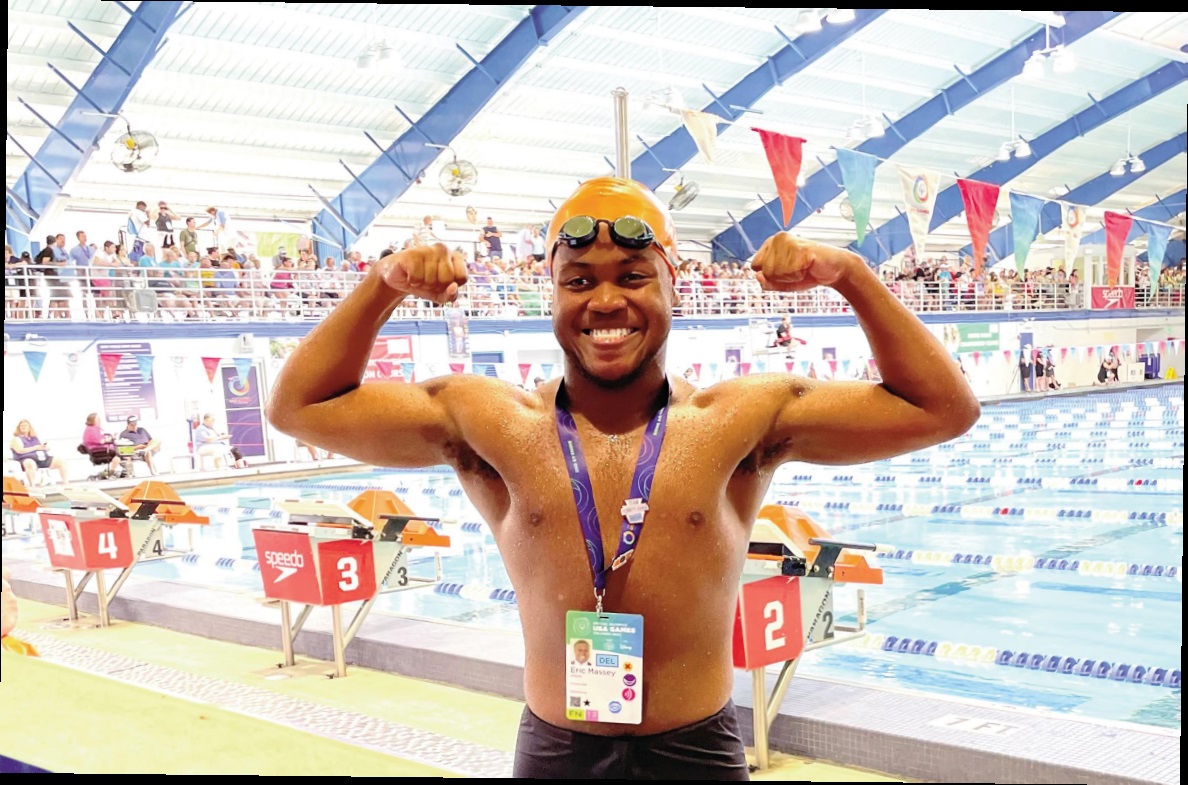
TWO BILLION STEPS LATER, ATHLETES CONTINUE LEADING THE WAY ON THE ROAD TO FITNESS
COURTESY OF SPECIAL OLYMPICS
Have you seen fitness challenges online and wondered if they really can impact someone's overall health? The latest Special Olympics report suggests that tracking steps and tying in social support indeed can make a difference. Just ask Eric Massey.
"I reached my goal of weighing under 200 pounds. I'm learning more about healthy eating and ways to stick to my healthy eating plan! My friend and I work out at the gym with our trainer," Eric shares. "I also do rock climbing with my family."
Eric, a two-time Special Olympics USA Games bronze medalist, university student in exercise and movement science, iRev (short for Inclusion Revolution) inclusive workout founder and Special Olympics Health Messenger, is among the burgeoning number of
people with intellectual disabilities who are leading the way through fitness challenges.
Fitness challenges can be a valuable tool in promoting healthy habits for individuals with intellectual disabilities. These challenges provide a structured and engaging way for people to develop and maintain fitness goals. By participating in these challenges, individuals with intellectual disabilities can improve their physical health, develop social connections, and boost their self-esteem.
Take for example, "The Road to USA Games:" a 20-week fitness challenge for athletes and Unified partners competing in the 2022 USA Games. Participants were challenged to reach at least one million steps, as they took a virtual journey from Brookline,
PROMOTING HEALTHY HABITS: Eric Massey, a Special Olympics Health Messenger, is among the burgeoning number of people with intellectual disabilities who are leading the way through fitness challenges.